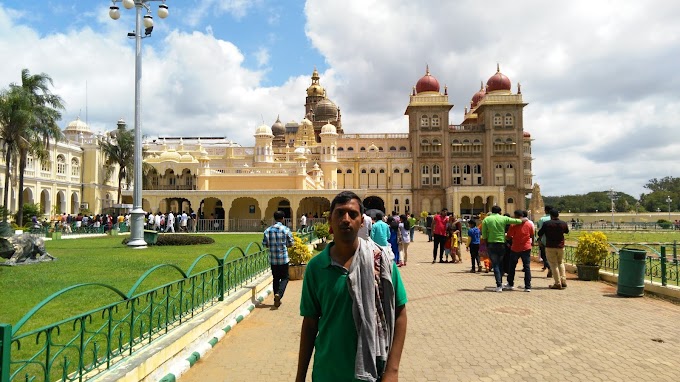SPIRITUAL LIFE
Traditionally, Hinduism identifies three marga (ways) of spiritual practice namely Jnana, the way of knowledge, Bhakti, the way of devotion and Karma yoga, the way of selfless action. In the 19th century Vivekananda, in his neo-Vedanta synthesis of Hinduism, added Rāja yoga, the way of contemplation and meditation, as a fourth way, calling all of them "yoga".
The term "spiritual", matters "concerning the
spirit", is derived from Old French spirituel which is derived from Latin spiritualis,
which comes from spiritus or "spirit".
Spiritual Life Be loved. Belong. Be known. Worship brings us
together, gives us identity in Christ, and sends us to build the Kingdom of
God. Spiritual Formation Learn more about opportunities to explore and engage
faith and purpose in community at Campbell. Courageous Conversations Engage
with fellow students in conversations regarding challenging issues facing
college students in today's society. The Office of Spiritual Life is deeply
invested in ministry with our students. The love of God compels us to be
present with our students as they discover who they are and who God is calling
them to be. Because we are committed to engaging both heart and mind, we seek to
make space for students to explore their faith in a community that will welcome
and challenge them. We believe that this work matters and that faith formation
is vital to the college experience. Get to know our staff who are resident
chaplains? Related Programs Campbell Youth Theological Institute A resource for
teens exploring God’s call for their lives.
Most people are addicted to worry, control, micro-management and doubt. Resist
the temptation to follow these tendencies. Don’t listen to the voice that says
you have to be in charge, that constant vigilance is the only way to get
anything done. Instead, let Spirit try a new way and be willing to experiment.
Intend for everything to work out as it should, then let go and allow
opportunities to come your way. The outcome you are trying so hard to force may
not be as good for you as the one that comes naturally.
A major influence on modern spirituality was the Theosophical
Society, which searched for 'secret teachings' in Asian religions. It has been
influential on modernist streams in several Asian religions, notably
Neo-Vedanta, the revival of Theravada Buddhism, and Buddhist modernism, which
have taken over modern western notions of personal experience and universalism
and integrated them in their religious concepts. A second, related influence
was Anthroposophy, whose founder, Rudolf Steiner, was particularly interested
in developing a genuine Western spirituality, and in the ways that such a
spirituality could transform practical institutions such as education,
agriculture, and medicine.
Spiritual practice and religion are an important part of
wellness, learning and growth. That’s why we dedicate space, staff and
resources for your spiritual journey. Our campus is home to students from
around the world, representing many faiths and worldviews. The Spiritual Life
community is a welcome place for all students and their religious affiliation,
belief or spiritual practice. We honor the perspective and values our diverse
students add to the community.
The Pillars of Islam ( "pillars of religion") are five
basic acts in Islam, considered obligatory for all believers. The Quran
presents them as a framework for worship and a sign of commitment to the faith.
They are the creed (shahadah), daily prayers (salat), almsgiving (zakah),
fasting during Ramadan and the pilgrimage to Mecca (hajj) at least
once-in-a-lifetime. The Shia and Sunni sects both agree on the essential
details for the performance of these acts.
Spiritual practices may include meditation, mindfulness, prayer,
the contemplation of sacred texts, ethical development and spiritual retreats in a convent. Love
and/or compassion are often described as the mainstay of spiritual development.
Spiritual Life Spiritual practice and religion are an important part
of wellness, learning and growth. That’s why we dedicate space, staff and
resources for your spiritual journey. Our campus is home to students from
around the world, representing many faiths and worldviews. The Spiritual Life
community is a welcome place for all students and their religious affiliation,
belief or spiritual practice.
Western New England University Spiritual Life extends an open
invitation to explore, deepen, and share our faith traditions and beliefs.
Spiritual Life on campus values the spiritual growth of our students as a vital
part of their development, welcoming them to an atmosphere of dialogue and
discussion that allows each to embrace a personal truth and to understand the
truth of others.
We are a diverse campus! We have Christian, Jewish, Buddhist,
and Muslim and over a dozen spiritual groups. Check our spiritual organizations
to find one you’re interested in.
Everyone lives in the same light. When you are tempted to judge
another human being, no matter how obviously he or she deserves it, remind
yourself that everyone is doing the best he or she can from his or her own
level of consciousness.
In some African contexts, spirituality is considered a belief
system that guides the welfare of society and the people therein, and
eradicates sources of unhappiness occasioned by evil. In traditional society
prior to colonization and extensive introduction to Christianity or Islam,
religion was the strongest element in society influencing the thinking and
actions of the people. Hence spirituality was a sub-domain of religion. Despite
the rapid social, economic and political changes of the last century,
traditional religion remains the essential background for many African people.
And that religion is a communal given, not an individual choice. Religion gives
all of life its meaning and provides ground for action. Each person is "a
living creed of his religion." There is no concern for spiritual matters
apart from ones physical and communal life. Life continues after death but
remains focused on pragmatic family and community matters.
The paradox of being spiritual is that you are always wrong and
always right at the same time. You are right to try to know God, but you are
wrong to think that things won’t change tomorrow. Every stage of inner growth
is good and is nurtured by God.
An important influence on western spirituality was Neo-Vedanta,
also called neo-Hinduism and Hindu Universalism a modern interpretation of
Hinduism which developed in response to western colonialism and orientalism. It
aims to present Hinduism as a "homogenized ideal of Hinduism" with
Advaita Vedanta as its central doctrine. Due to the colonisation of Asia by the
western world, since the 19th century an exchange of ideas has been taking
place between the western world and Asia, which also influenced western
religiosity. Unitarianism, the idea of Universalism, was brought to India by
missionaries, and had a major influence on neo-Hinduism via Ram Mohan Roy's
Brahmo Samaj and Brahmoism. Roy attempted to modernize and reform Hinduism,
from the idea of Universalism. This universalism was further popularized and
brought back to the west as neo-Vedanta, by Swami Vivekananda.
Hasidic Judaism, meaning "piety" ( "loving
kindness") is a branch of Orthodox Judaism that promotes spirituality
through the popularization and internalization of Jewish mysticism as the
fundamental aspect of the faith. It was founded in 18th-century Eastern Europe
by Rabbi Israel Baal Shem Tov. Hasidism emphases the Immanent Divine presence
in everything and has often focused on optimism, encouragement, and daily fervor.
Different schools of Hinduism encourage different spiritual
practices. In Tantric school for example, the spiritual practice has been
referred to as sadhana. It involves initiation into the school, undergoing
rituals, and achieving moksha (liberation) by experiencing union of cosmic
polarities.] The Hare Krishna school emphasizes bhakti yoga as spiritual
practice. In Advaita Vedanta school, the spiritual practice emphasizes jnana yoga
in stages: samnyasa (cultivate virtues), sravana (hear, study), manana
(reflect) and dhyana (nididhyasana, contemplate).
Jnana marga is a path often assisted by a guru (teacher) in
one's spiritual practice. Bhakti marga is a path of faith and devotion to deity
or deities; the spiritual practice often includes chanting, singing and music –
such as in kirtans – in front of idols, or images of one or more deity, or a
devotional symbol of the holy. Karma marga is the path of one's work, where
diligent practical work becomes in itself a spiritual practice, and work in
daily life is perfected as a form of spiritual liberation and not for its
material rewards. Raja marga is the path of cultivating necessary virtues,
self-discipline, tapas (meditation), contemplation and self-reflection
sometimes with isolation and renunciation of the world, to a pinnacle state
called samadhi.










